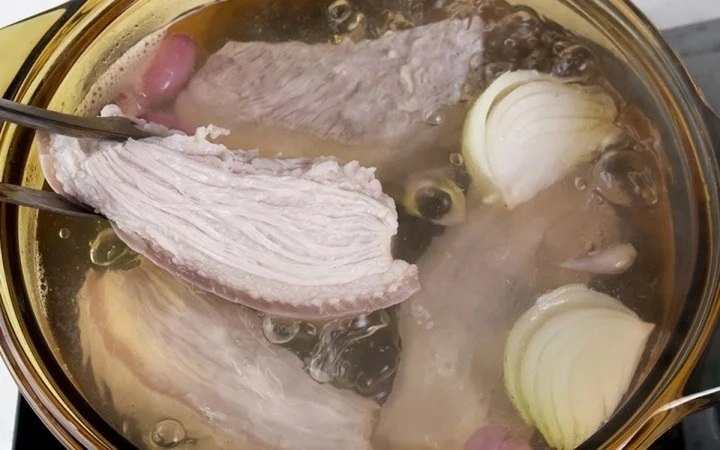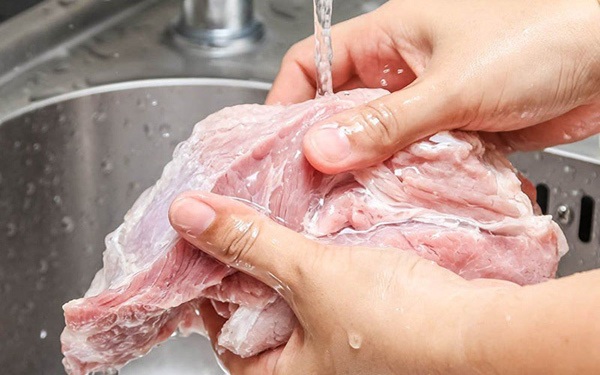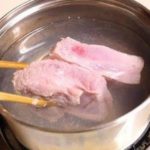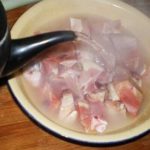1. Should you blanch meat in boiling water?
Blanching meat in boiling water is a common mistake made by many home cooks. Putting meat into boiling water will cause the meat to shrink and become tough.

The reason is that the protein in pork exists in the form of meat and fat. If you blanch the meat in boiling water, these components will clump together, causing the outer part of the meat to become tough; harmful substances inside the pork will also clump together and cannot escape. Therefore, this method of cleaning pork not only fails to clean it but also inadvertently retains harmful substances. You may not know that most types of bacteria only die at temperatures above 100 degrees Celsius. So blanching does not have any effect at all.
Therefore, you should only use boiling water to disinfect if necessary. If the meat is unfortunately infected, it can be treated by boiling it thoroughly, at which point the bacteria will die and the meat will become safer.
In addition, rinsing the pork directly under running water is also a method that many people apply, thinking that the pressure of the flowing water can clean the bacteria and dirt clinging to the meat. However, this rinsing method can only clean the dirt on the surface of the meat. This is also not the correct way to wash pork.
2. The correct method of washing pork to remove dirt
Wash pork with diluted salt water
Washing pork with diluted salt water is considered the proper way to clean pork. It can remove dirt from the inside.
- You only need to dissolve warm diluted salt water in a basin and soak the meat for about 10 – 15 minutes. At this time, dirt from the inside will slowly come out.
- Then wash the meat again with water and put it in cold water to slowly bring it to a boil. This will push impurities inside out.
- During the boiling process, if you see more foam in the boiling water, it means that more dirt is being cleaned.

Soak pork in rice washing water
- After washing rice, keep the rice washing water to soak the meat. Rice washing water contains a lot of starch and alkali – ingredients used to clean food and remove impurities in pork.
- You should wash the meat before soaking it in rice washing water.
- Soak the meat for about 20 minutes and you will see a lot of dirt floating on the surface of the rice washing water. At this time, bacteria and dirt have been pushed out.
- Wash the pork again to remove any remaining dirt on the surface of the meat.
- Then use a piece of lime to rub the surface of the meat and let it sit for about 2-3 minutes before rinsing it again with water.
Wash pork with vinegar
- This method of washing pork is similar to soaking pork in rice washing water. The difference is that vinegar is used instead of lime.
- You prepare a clean basin, add a little salt, white vinegar and rub it directly onto the pork. Do this for about 10 minutes.
- At this point, the dirt and blood in the pork will be excreted and completely cleaned.
The above 3 methods of cleaning pork are very easy to do, so any homemaker can do it. However, there is one method that is faster than all the others and you can easily apply it to clean pork ribs.































